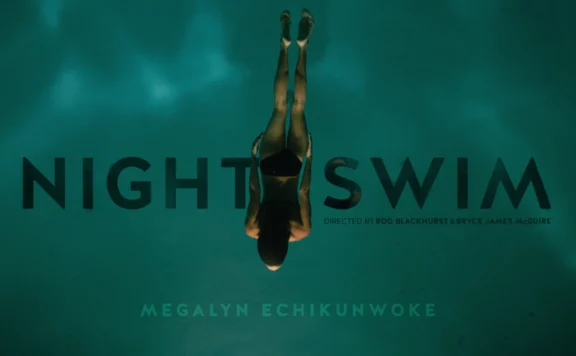As much as I like tucking into a good Steven King book, I have never before read his novel Gerald’s Game. After trawling through the internet in an all too familiar desperate search for a decent horror that I am yet to see, my eyes happened upon The Master of Horror’s name and like any horror fan worth their salt, I was drawn right in.
On first reading the synopsis, the very premise of the story cast a net weaved from doubt across my sceptical mind. I simply couldn’t see how a story with so few characters could hold any interest after the first 20-minutes, even coming from the literacy deity that is Steven King. However, my mind was changed in under ten minutes.
Director Mike Flanagan (Oculus, I Know What you did last Summer and Ouija: Origin of Evil), was good enough to go easy on the unnecessary ‘fluff’ that we see so often in Steven King adaptations. By including the proverbial smoking gun – in this case, a pair of handcuffs – within the first few minutes, the viewer is quickly assured; safe in the knowledge that Gerald’s Game isn’t about to take them by the hand and lead them down attention-draining, arduous paths.
We are fast brought into the fractured relationship of the core characters, Jessie (Carla Gugino) and Gerald Burlingame (Bruce Greenwood) as we are subjected to a fly-on-the-wall perspective of a very uncomfortable scene in which we see the far-from-happy couple arrive at a remote cabin for a planned weekend of sexual deviation in hope of rekindling their flame. The tale takes on a dark turn as we see the male protagonist’s unhealthy need for aggression unfolding before our eyes.
Gerald’s manner rapidly changes as he goes from the loving husband wanting to rekindle a rocky relationship – to a leering, intensely creepy monster harbouring a macabre rape fantasy. Laying testament to the raw talent of both actor and actress, the scene unfurls leaving a real, creeping sense of disgust for our title character before he clutches his chest and rolls off the bed having apparently suffered the fatal heart attack that is to leave our heroine hopelessly shackled to the bed; creating the very base of the story.
What follows is a whirlwind (because rollercoasters are so cliché) spiral into the very psyche of Jessie as she battles her own deep-seated and deliberating issues. Gerald’s Game is well structured in a way that we aren’t forced to endure the monotony of a single room. Instead, we are often thrown into Jessie’s darkest memories. Cleverly set against the background of a solar eclipse these scenes waste no time in preferring the perfect opportunity for some spectacular lighting that perfectly frames her retrospection, which goes to tell a harrowing tale alone.
Throughout the entirety of our journey, is a dog named Cujo (as a knowing nod to King’s earlier bestselling book of the same name). Cujo featured at the very start of the film as a homeless dog (not a The Littlest Hobo reference in sight), when Jessie fed him a “$200-a-portion” steak, much to Gerald’s disappointment. He later appears at the foot of the bed, periodically feasting on her husband’s remains. Cujo’s very presence relentlessly conjures up an impending sense of dread and uncertainty as Jessie is reminded by an hallucination(?) of her recently-deceased partner that he will soon be devoured and she will be nothing but fresh meat.
Jessie’s hallucinations become increasingly bizarre and are perfectly captured with clever camera work as the characters of her mind change locations often between frames. Alongside her husband she is visited by herself, spurring herself on and occasionally taunting her counterpart. These dialogues are flawlessly played out, giving Gerald’s Game a certain edge as we see our hapless heroine rationalising with her very own being.
Paying homage to fans of classical horror, King adds The Moonlight Man into this cooking pot of emotions. The Moonlight Man, a towering behemoth with a sunken face, long arms that dangle at his sides, a grey pallor, a monstrously large head and a fiendish pastime of ‘collecting’ gruesome souvenirs. Big Moon’s part in the story all becomes apparent as the story disentangles. His appearances in the film force the viewer to ask themselves questions, opening-up new layers to this deep, psychological fairground ride (that is NOT a rollercoaster) that are sure to stay with you for a long, long time.
At one hour and forty-seven minutes, Gerald’s Game is an ideal length in duration. I feel that while the story and acting were captivating, the foundations would begin to crumble if it were to be any longer. While this sounds like a definite negative, it’s merely my way of saying the film has the perfect duration. As transfixing as the plot and execution are, the crescendo of a climax is more than welcomed as, like the ribbon on a precious gift; it perfectly ties the ends together, leaving you with that certain satisfaction that is always a sure sign of a timeless classic.
A fast-paced, emotion-stirring, diamond of a movie that you will still be talking about in years to come.





Heatman
The only thing that I wasn’t cool with in the movie was the rape acts-thoughts. It’s one thing that I’m not comfortable with psychologically because of my experience with it. Apart from that, it’s a very decent movie.